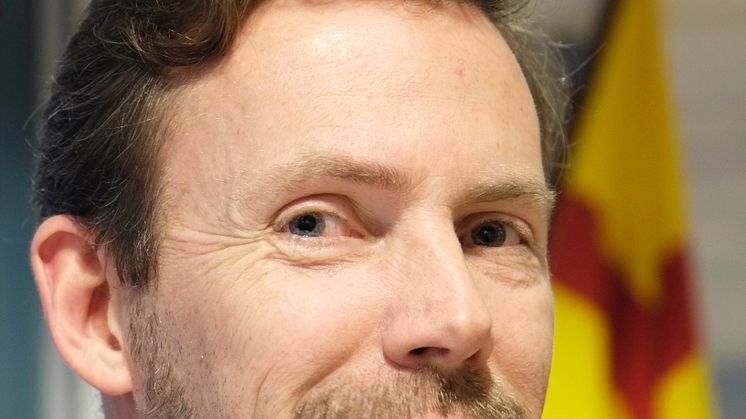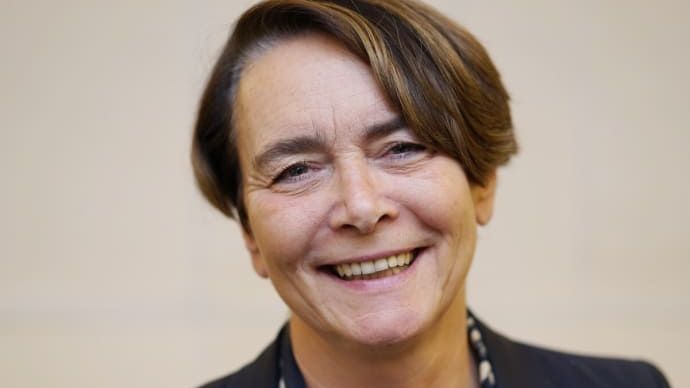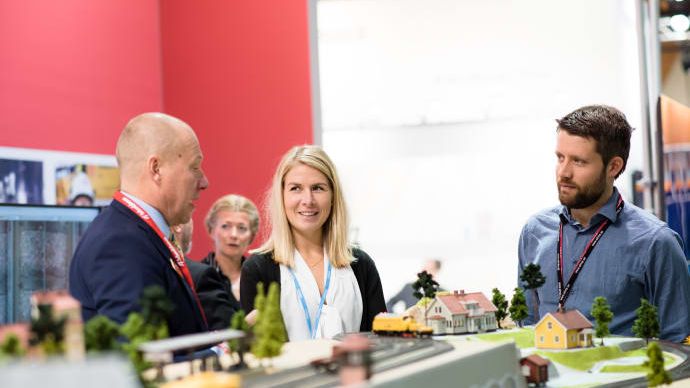
Press release -
Consensus and cooperation make for a transport-smart Nordic region
A new Nordic council of ministers for transport issues, joint planning for an expanded double track line between Oslo and Gothenburg, and synchronisation of the national transport plans are some of the Nordic Council’s proposals for growth and development in the Nordic region. The Nordic Council is a partner behind Elmia Nordic Future Transport Summit and is working to put transport issues high on the agenda in a better and clearer way than at present.
“Today people often think too parochially in each country,” explains Johan Lindblad, senior adviser at the Nordic Council’s secretariat. “They sit in Stockholm and plan for Swedish towns, and in Norway they do the same for their towns, and they forget that Norway’s most important port is actually Gothenburg. Politicians lobby for their own small districts and at the departmental level, the calculations stop at the border. Joint investments just don’t happen.”
The Nordic Councilwas formed in 1952 and is the official parliamentary body for Nordic cooperation. The Council has 87 elected members from the member countries’ parliaments and from all parties across the political spectrum. Until 2005, there was also a Nordic Council of Ministers for Transport, with Nordic ministers who met annually to discuss common issues.
Coordinated Nordic prioritisation
In the recommendation made by the Nordic Council earlier this year to the Nordic governments, one of the proposals is the creation of a council of ministers for transport issues.
“It feels highly relevant to have coordination, so that the countries will be able to establish priorities from a Nordic perspective, and also that they will be able to intensify their cooperation at the governmental level,” Lindblad says. “Most of our trade is with each other, and we exchange the most workers with each other, so why shouldn’t we facilitate transport and infrastructure between our countries?”
Taken together, the Nordic countries have just over 26 million inhabitants and an economic might on a par with Russia, Brazil and Canada. Trade within the Nordic region exceeds Nordic trade with China, India, Russia, Brazil, the UK, France and the US combined, making the Nordic countries each other’s most important trading partners. There is therefore a great need for coordinated transport infrastructure, which the Nordic Council says would both increase growth and reduce emissions.
Communications between the Nordic region and other countries are also a joint issue for the Nordic countries as a whole, Lindblad says, and gives an example.
“The Fehmarn Belt Fixed Link is not only a Danish and German matter, it’s also a link between Germany and the other Nordic countries.”
Collective meeting place
The Nordic region and the future is the theme of Elmia Nordic Future Transport Summit.
“This is a theme that is clearly appropriate for us, and the reason we’re happy to be involved,” Lindblad says. “The Nordic Council wants to be a visible actor on transport issues in the Nordic region, and this is an event that brings together relevant, alert industry players at a high level. Being present and visible there, and also partly influencing the content, makes it clear that you are an actor, a player in the transport field.”
“Cooperation across borders is a major theme of Elmia Nordic Future Transport Summit, along with funding issues, skills supply, and research and innovation,” explains Magnus Ringqvist, project manager of Elmia Nordic Future Transport Summit. “We shed light on these major issues from a Nordic future perspective.”
“We hope that all the Nordic ministers responsible for transport and infrastructure will come to Elmia,” Johan Lindblad concludes. “And it’s important that they don’t just outline what each country is doing separately. The interesting question is ‘What do you want to do together?’ That’s where tomorrow’s Nordic infrastructure will be found.”
Here are the Nordic Council’s 15 proposals to the Nordic governments for growth and development in the Nordic region:
- to discuss alternative funding methods to bring about beneficial socio-economic investments
- to create a Nordic fund to finance investigations, analyses and planning work
- to restore a Nordic Council of Ministers for Transport
- to integrate the expansion of the double track between Oslo and Gothenburg into the national transport plans
- to jointly analyse and plan for the expansion of ports and rail links in the north
- to instruct their transport authorities to agree on methods of data processing and analysis so that the countries will have the same planning basis for their prioritisation decisions
- to base their investments on socio-economic benefit without taking into account national borders
- to instruct their transport authorities to pay particular attention to the cross-border transport infrastructure possibilities
- to synchronise their national transport plans
- to coordinate their common positions regarding the EU’s map of its prioritised transport networks and corridors
- to develop a common strategy for the Nordic transport area
- to produce a joint calculation that indicates the benefits of strengthening infrastructure investments between the Nordic capitals, especially rail
- to collectively consider the benefit to society of strengthening east-west air, road and rail connections
- to jointly develop conditions or economic incentive structures for competitive ferry services between the Nordic countries
- to jointly investigate how bottlenecks can be remedied while also developing industry and labour markets in sparsely populated areas.


